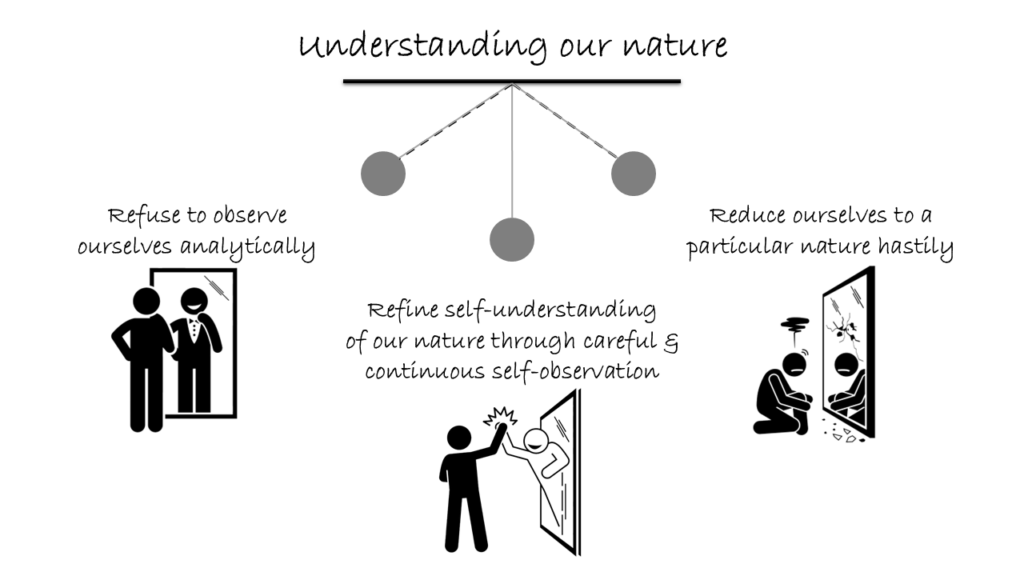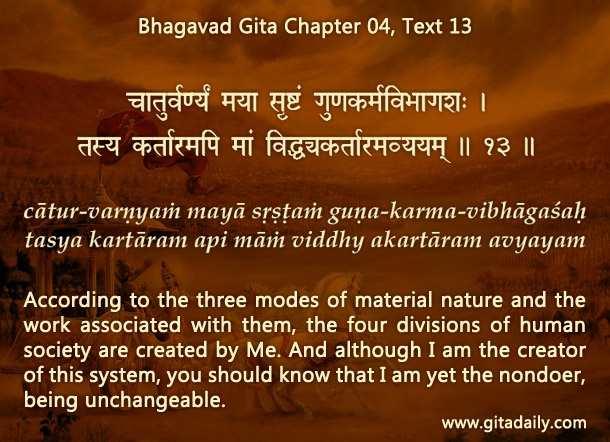Understanding ourselves: The utility of categorization the necessity of self-observation
We all occasionally act in ways that surprise us, either positively or negatively. At times, we exceed our expectations by doing things we didn’t think we were capable of. At other times, we shock or disappoint ourselves by failing at tasks we assumed would be easy.
This discrepancy between our actions and expectations often arises from an incomplete understanding of our own nature. The Bhagavad-Gita (3.34) emphasizes that everyone acts according to their nature and that repressing our inclinations only leads to frustration. To bridge this gap between self-perception and self-performance, careful self-observation is essential.
The importance of self-observation
By observing our behavior over time, we can discern patterns that reveal both our strengths and weaknesses. This includes understanding our natural interests—things that captivate our mind—and abilities—things we can execute effectively. Such understanding helps us set realistic expectations for ourselves, identifying what we should focus on and what might be better delegated to others.
Using systems of classification thoughtfully
Having an overarching framework for understanding human nature, such as the four-fold categorization described in the Bhagavad-Gita (4.13), can be helpful. However, caution is necessary. When learning about these systems, it’s easy to become overly eager and reduce ourselves—or others—to a single category based on superficial similarities.
Humans are complex beings, and our abilities often span multiple categories. Instead of using a categorization system to box ourselves into a fixed identity, we should treat it as a tool for refining self-understanding. This nuanced approach allows us to work with our nature and actualize our God-given potential.
Striking a balance
Refusing to consider any categorization system leaves us groping in the dark when faced with responsibilities that challenge our abilities. Conversely, overly rigid adherence to a single category can deprive us of opportunities to explore latent potentials. The best approach combines thoughtful use of categorization systems with ongoing self-observation, fostering a healthier relationship with ourselves.

Summary:
- Self-observation helps us understand our natural interests and abilities, enabling realistic expectations and better decision-making.
- Systems of categorization, such as the Bhagavad-Gita’s four-fold division, can serve as tools for self-refinement but should not reduce our identity to a single category.
- A balanced approach—combining categorization systems with nuanced self-observation—helps us actualize our potential while maintaining a healthy self-view.
Think it over:
- Have you ever been surprised or disappointed by your performance in a task? What insights did it provide about your abilities?
- Have you used a system of human nature categorization? Did it help or hinder your understanding of yourself?
- How can you be both careful and resourceful in using categorization systems to better understand and work with your nature?
***
04.13 According to the three modes of material nature and the work associated with them, the four divisions of human society are created by Me. And although I am the creator of this system, you should know that I am yet the nondoer, being unchangeable.


Leave A Comment